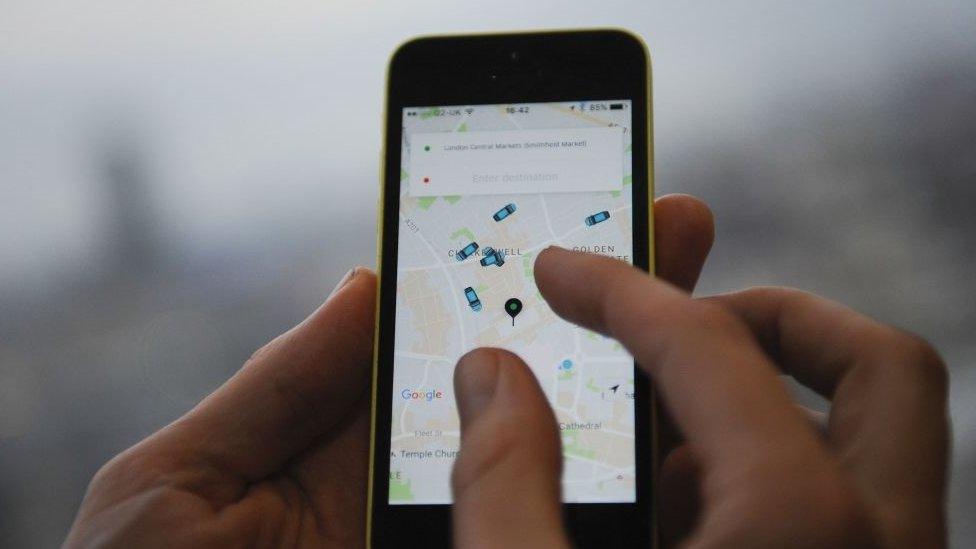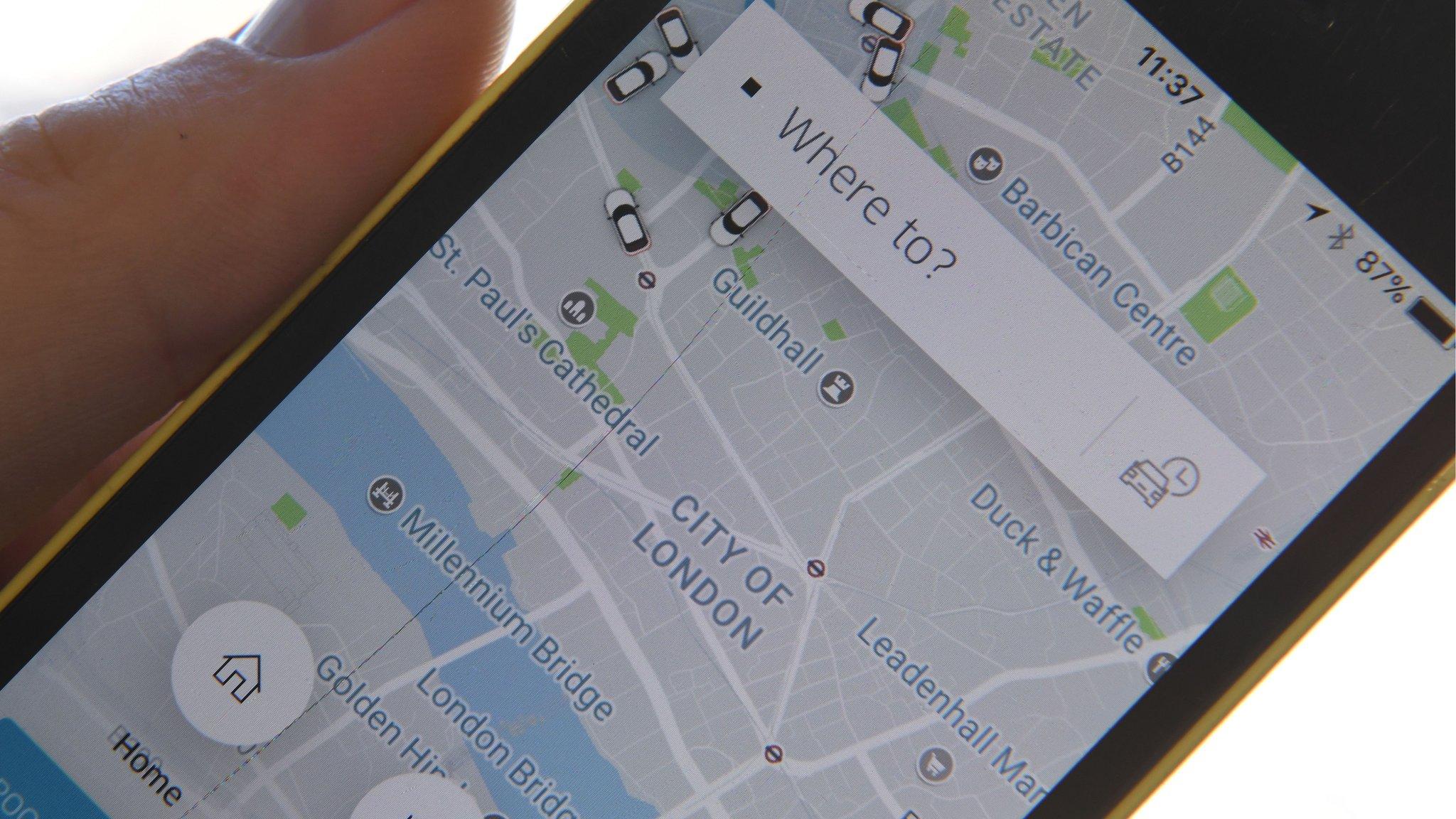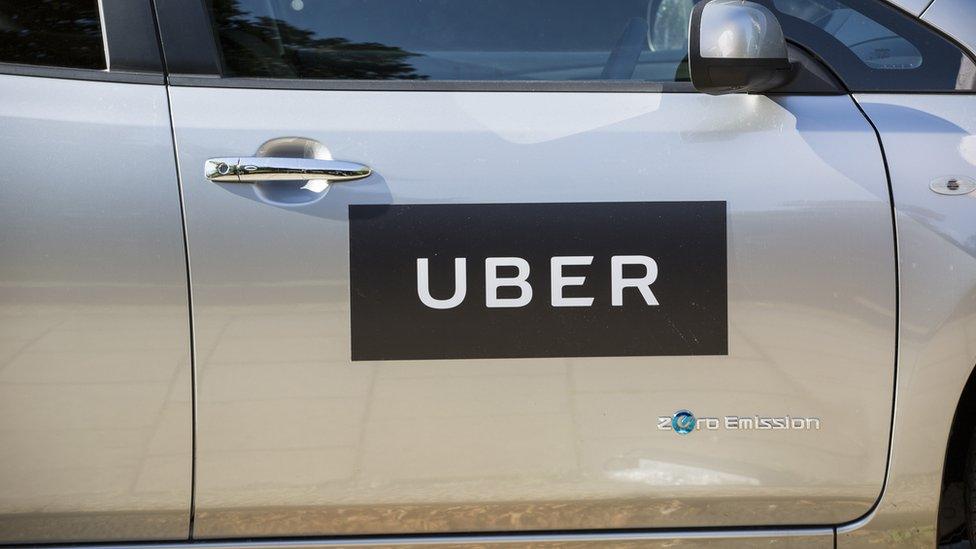Uber appeals against drivers' rights to pay and holiday
- Published

A long-running case over the status of Uber drivers will be heard in the Court of Appeal on Tuesday and Wednesday.
The taxi-hailing app is contesting an employment tribunal finding that drivers should be treated as workers rather than self-employed.
If classified as workers, Uber drivers are entitled to paid holiday and the minimum wage. Unions calculate this could be worth £18,000 per driver.
Uber said the tribunal "fundamentally misunderstood" how it operated.
It is the latest stage in a legal battle led by two Uber drivers James Farrar and Yaseen Aslam, who won an employment tribunal in October 2016.
After the tribunal ruling in October 2016, Uber appealed to the employment appeal tribunal, but lost in November 2017. The tribunal upheld its original decision that any Uber driver who had the Uber app switched on was working for the company under a "worker" contract.
Uber is now taking the case to the Court of Appeal, the next stage of the appeal process before the Supreme Court.

James Farrar is one of the two drivers at the centre of the case
Uber said that 60,000 licensed private hire drivers now use its app across UK.
But the case could have implications beyond Uber, according to law firm Leigh Day.
"This appeal is of great significance not only to Uber drivers but also to millions of other workers in the gig economy and we hope that this can now bring this matter to a conclusion for the benefit of all workers," said Nigel Mackay, partner at Leigh Day.
Law firm Leigh Day started the legal action against Uber on behalf of 25 members of the GMB union, which initially included Mr Farrar and Mr Aslam but they pursed their case with a different union, the IWGB,
Mr Farrar, who is branch chair of the IWGB United Private Hire Drivers branch, said mini-cab drivers were still waiting for justice, two years after the tribunal ruling.
"As the government ignores this mounting crisis, it's been left to workers to fix this broken system and bring rogue bosses to account. If anything gives me hope, it is the rising tide of precarious workers that are organising and demanding a fair deal," he said.
'Significant' financial implications
Uber said it had made changes to give drivers more control over how they use its app. It also cited a study by Oxford University that found drivers make more than the London Living Wage and want to keep the freedom to choose if, when and where they drive.
"Almost all taxi and private hire drivers have been self-employed for decades, long before our app existed. We believe the Employment Appeal Tribunal last year fundamentally misunderstood how we operate," an Uber spokesperson said
"For example, they relied on the assertion that drivers are required to take 80% of trips sent to them when logged into the app, which has never been the case in the UK."
The GMB said Uber should admit defeat.
Sue Harris, legal director at GMB, said: "While the company are wasting money losing appeal after appeal, their drivers are up to £18,000 out of pocket for the last two years alone.
"That's thousands of drivers struggling to pay their rent, or feed their families."
The £18,000 figure is based on an Uber driver in London working a 40-hour week.
Paul Jennings, partner at Bates Wells, the law firm representing Mr Farrer and Mr Aslam, said a key issue in this case was whether Uber had mischaracterised the employment status of its fleet and in so doing failed to observe fundamental employment rights.
"The financial implications of this judgment could be very significant," Mr Jennings said.
The IWGB said Deliveroo riders, outsourced cleaners, restaurant workers and others in the gig economy would take place in a march on Tuesday to raise the issues facing "precarious workers".
- Published24 November 2017

- Published10 November 2017
